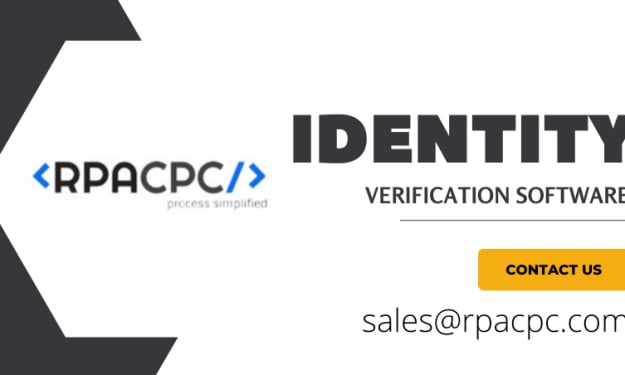
The Significance of Identity Verification
Identity verification serves as the cornerstone of trust in various aspects of life. From opening a bank account to accessing government services, verifying one's identity is crucial to prevent fraudulent activities and ensure safety. In India, where a vast population resides, the need for a robust and efficient identity verification system becomes even more pronounced.
Aadhaar: India's Unique Identification Program
In 2009, the Government of India introduced the Aadhaar program, a biometric-based unique identification system. Aadhaar aims to provide every resident of India with a unique 12-digit identification number linked to their biometric and demographic data. This ambitious project has revolutionized identity verification in the country.
The Advantages of Aadhaar
1. Streamlining Government Benefits
Aadhaar has simplified the process of availing government benefits and services. With a single identification number, citizens can access various welfare schemes, subsidies, and entitlements directly, eliminating intermediaries and reducing the chances of fraud and corruption.
2. Financial Inclusion
A significant percentage of India's population previously lacked access to formal financial services. Aadhaar has played a pivotal role in promoting financial inclusion by enabling the unbanked population to open bank accounts and access credit easily.
3. Digital Transformation
Aadhaar has been instrumental in driving India's digital transformation. It has facilitated the growth of e-governance, making it more accessible for citizens to interact with the government and its services online.
4. Enhanced Security
By incorporating biometric data, Aadhaar has substantially improved the security of identity verification. It has reduced the chances of identity theft and impersonation, making it a reliable method for establishing a person's identity.
The Role of Aadhaar in Private Sector Services
Apart from its extensive application in the public sector, Aadhaar's integration into the private sector has been transformative as well. Various industries have adopted Aadhaar-based verification to enhance their service delivery and mitigate risks.
1. Telecommunications
In the telecommunications industry, Aadhaar-based verification has made it easier for people to get SIM cards and activate mobile connections while ensuring that the provided information is authentic.
2. Banking and Finance
Aadhaar has revolutionized the banking sector by enabling hassle-free account opening, e-KYC (Know Your Customer) processes, and secure digital transactions.
3. Healthcare
In the healthcare domain, Aadhaar-based verification has been pivotal in ensuring the accuracy of patient data, preventing medical fraud, and promoting efficient healthcare services.
4. E-commerce
Aadhaar has facilitated a more trustworthy online shopping experience by reducing the chances of fraudulent activities during the verification and delivery process.
Addressing Privacy Concerns
While Aadhaar has undoubtedly revolutionized identity verification in India, it has also faced criticism regarding data privacy and security. The government has taken various measures to address these concerns and ensure that citizens' information is protected.
The Future of Identity Verification
As technology continues to evolve, so will identity verification methods. India is at the forefront of adopting cutting-edge technologies like blockchain and artificial intelligence to further enhance the security and efficiency of identity verification.
The Need for Identity Verification in India
Identity verification is of paramount importance in India due to various reasons. The country's vast population, diverse demographics, and the rapid digitization of services have accentuated the need for robust identity verification measures. Here are some key reasons why identity verification is crucial in India:
Government Services: India has a vast array of government welfare schemes and services aimed at providing benefits and assistance to its citizens. To ensure that these services reach the right beneficiaries and to prevent misuse or fraud, accurate identity verification is essential.
Financial Inclusion: With a significant portion of the population still unbanked or underbanked, identity verification is critical for financial inclusion. It enables individuals to open bank accounts, access credit, and benefit from various financial services, contributing to economic growth.
E-Governance and Digital Services: The Indian government is increasingly promoting digital services, such as online applications for licenses, permits, and government documents. Proper identity verification safeguards these processes against fraudulent activities and ensures secure access to sensitive information.
Aadhaar System: The Aadhaar project, initiated by the Indian government, has created a biometric-based unique identity for over a billion Indians. Aadhaar has been instrumental in streamlining identity verification and is now linked to various services, including banking, telecommunications, and government benefits.
Curbing Identity Theft: Identity theft is a prevalent concern globally, and India is no exception. A robust verification system helps mitigate identity theft risks and prevents criminals from impersonating individuals to commit fraud.
Preventing Terrorism and Crime: Effective identity verification plays a crucial role in national security. It helps law enforcement agencies track and apprehend criminals and terrorists who might otherwise use false identities to evade detection.
Digital Transactions: With the rise of digital payments and e-commerce, identity verification is crucial to ensure secure and trustworthy transactions, protecting both businesses and consumers.
Health and Medical Services: In the context of public health, identity verification becomes vital for accurate medical records, vaccine distribution, and targeted healthcare interventions.
Education and Employment: Proper identity verification in the education and employment sectors helps maintain the integrity of academic qualifications and job credentials, ensuring the right individuals are given appropriate opportunities.
Data Privacy and Protection: Implementing robust identity verification mechanisms helps protect the privacy and personal data of individuals, fostering trust in online platforms and services.
Identity verification in India serves as a foundational pillar for the efficient functioning of various sectors, promotes transparency, and safeguards the rights and privileges of citizens. By leveraging technology and adhering to privacy standards, India can continue its journey towards a more secure and inclusive digital future.
How Technology is Revolutionizing Identity Verification
Technology has brought about a revolutionary transformation in the field of identity verification, significantly enhancing security, efficiency, and user experience. Here are some ways in which technology is revolutionizing identity verification:
Biometric Authentication: Biometric technologies such as fingerprint scanning, facial recognition, iris scanning, and voice recognition have become prevalent in identity verification. These methods offer highly accurate and secure authentication, as biometric features are unique to each individual, making it challenging for fraudsters to impersonate others.
AI and Machine Learning: Artificial Intelligence (AI) and Machine Learning (ML) algorithms have enabled intelligent verification systems. These algorithms can analyze vast amounts of data, detect patterns, and make real-time decisions, improving the accuracy and speed of identity verification processes.
Mobile Identity Verification: Smartphones have become ubiquitous, and mobile identity verification leverages these devices to verify identities remotely. Through mobile apps, users can provide biometric data and documentation to confirm their identity from anywhere, reducing the need for physical presence.
Blockchain Technology: Blockchain offers decentralized and tamper-proof storage of identity data. By utilizing blockchain for identity verification, individuals can maintain control over their personal information and share it securely with authorized parties, preventing data breaches and identity theft.
Document Verification: Advanced optical character recognition (OCR) technology can extract and validate information from identity documents like passports, driver's licenses, and IDs. This streamlines the verification process by reducing manual data entry and improving accuracy.
Liveness Detection: To counter spoofing attempts, liveness detection technology has emerged. It verifies that the user is physically present during the authentication process, preventing fraudsters from using photos or videos to trick facial recognition systems.
Two-Factor Authentication (2FA): Two-factor authentication adds an extra layer of security by combining something the user knows (like a password) with something the user possesses (like a mobile device). This helps prevent unauthorized access even if the password is compromised.
Cloud-based Solutions: Cloud-based identity verification services offer scalability, flexibility, and cost-effectiveness. Companies can integrate these solutions into their applications easily, providing seamless and secure verification experiences for users.
Behavioral Biometrics: Analyzing user behavior, such as typing patterns, mouse movements, and touch screen interactions, can help verify identities. Behavioral biometrics add an additional layer of security and can continuously authenticate users during their online sessions.
Cross-Verification and Data Sharing: Technology facilitates cross-verification by enabling different entities to share and verify identity data securely. This can be particularly useful for financial institutions, government agencies, and other service providers to collaborate in preventing fraud and ensuring accuracy.
Overall, the integration of advanced technologies in identity verification processes has not only improved security but also enhanced the user experience, reduced processing time, and enabled seamless access to various services in a digital and interconnected world. As technology continues to evolve, identity verification is expected to become even more sophisticated and efficient, further bolstering security measures and protecting individuals from identity-related threats.
Conclusion
Identity verification is undeniably a crucial aspect of modern-day living, and India's Aadhaar program has been a game-changer in this regard. It has empowered millions of Indians by providing them with a unique identity and access to various services. While challenges persist, the future of identity verification in India looks promising, and it will undoubtedly play a significant role in building a safer and more secure future for the nation.
About the Creator
rpacpc
RPACPC is the leading API-based identity verification provider. We offer fast, easy, and secure verification for businesses of all sizes.






Comments
There are no comments for this story
Be the first to respond and start the conversation.